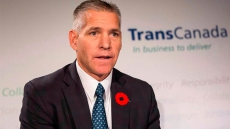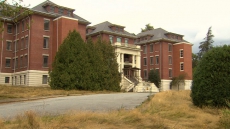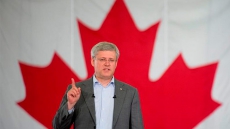VICTORIA — A government-ordered report says a tailings spill at a B.C. mine was caused by an inadequately designed dam that caused its foundation to fail.
The tailings dam at the Mount Polley mine burst last August, sending 24 million cubic metres of mine silt and water gushing into nearby rivers and lakes.
Norbert Morgenstern, chairman of the panel that investigated the spill, says evidence indicates there was a glacial lake deposit under the foundation of the dam.
The report says the dam's design didn't take into account the glacial environment, causing the foundation to fail when it was subjected to heavy stress.
Morgenstern says there were no warning signs that could have foreshadowed the dam's failure.
The provincial government appointed a panel of three geotechnical experts to investigate the cause of the collapse and the role of government regulation and oversight.
Significant Events Related To A Tailings Spill At B.C.'s Mount Polley Mine

A timeline of events related to the failure of a tailings dam at the Mount Polley gold and copper mine southeast of Quesnel, B.C.:
Aug. 4, 2014: The mine's tailings dam bursts without warning at 1 a.m., sending 24 million cubic metres of mine silt and water spilling into nearby lakes and rivers.
Aug. 6: The B.C. government orders mine owner Imperial Metals Corp. (TSX:III) to immediately stop the release of toxic material into surrounding waterways. Imperial Metals president apologizes to residents of Likely, B.C., who live downstream and are affected by water-use ban.
Aug. 8: A drinking-water ban is partially lifted as initial test results show water is within human health guidelines.
Aug. 9: The province announces a dramatic drop in the amount of material leaking from the breached pond, but says one creak is still 45 metres wide in some areas, up from original width of one metre.
Aug. 12: The drinking-water ban is almost entirely lifted with the exception of largely uninhabited areas in the direct vicinity of the spill.
Aug. 18: The B.C. government appoints an independent panel to investigate the spill, while also ordering every mining operation in the province to conduct safety inspections.
Aug. 19: The spill prompts the Canadian Nuclear Safety Commission requests a series of safety checks at uranium facilities with tailings ponds.
Nov. 5: With the Mount Polley spill overshadowing plans to expand the province's mining industry, B.C. Mines Minister Bill Bennett visits Anchorage, Alaska, to meet with state officials, fishing organizations and aboriginal groups to address their concerns.
Nov. 24: The province releases a progress report on the Mount Polley cleanup, warning that it will take years to undo the damage caused by the spill.
Dec. 18: B.C.'s chief mines inspector allows Imperial Metals to begin repairs on the Mount Polley tailings pond to deal with the impact of increased water flow from melting spring snow.
Jan. 30, 2015: A report by independent experts blames the spill on poor design.





